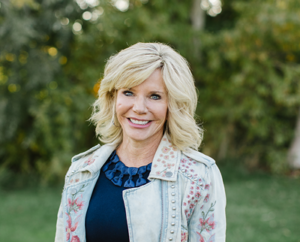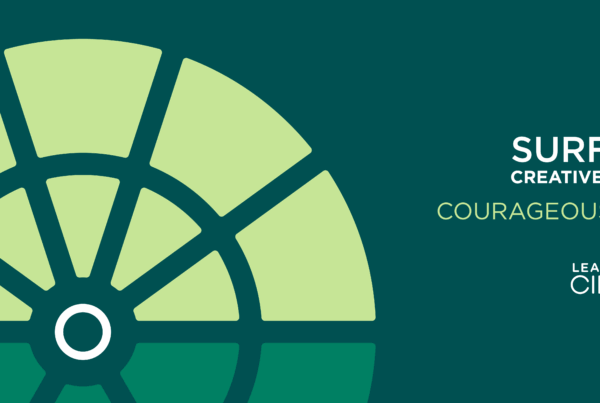A few short and long weeks ago, the world was forced to bow down to a virus – COVID-19. Everything routine has changed. It seems we live in a new universe that calls us to engage from one central location – our homes. We find our minds racing to keep balls from dropping as we adapt and learn a new way to juggle. Perhaps we need to retire juggling altogether and, in its place, find the ability to hold space differently.
For those of us who carry the “mental load” for our families, you may be feeling overwhelmed and uncertain – and you are not alone. When we talk about mental load (sometimes called emotional labor), we’re talking about having a lot of our minds, swirling constantly. Professionally, we might call this all-consuming job project management or management, But at home? There really isn’t an adequate word that sums up all that we do – visible or otherwise – to ensure our families are safe and cared for. Add to this the uncertainty and fear of this moment in time, and it can make that load feel unbearable to carry.
As the COVID-19 pandemic continues its deadly path across our globe, it means school closures, work-from-home mandates, social-distancing, shelter-in-place orders and loved ones we can’t visit anymore. It also means financial concerns, as we watch the stock market fluctuate wildly day to day. We are quickly becoming (more) emotionally and physically exhausted.
Most of us are now working from home, trying our best to be a reliable employee or business owner. If you are deemed an “essential worker,” there is the added stress of bringing the virus home to the heart of everything we love. Under this new stress, women, men, partners, and parents are doing what we can to stay afloat.
Right now, 130 countries (and counting) have implemented nationwide closures, impacting over 80% of the world’s student population, to stop the spread of the coronavirus. Now, we must be a school teacher, principal, traffic director, counselor for our lonely teenager, and entertainment/disaster manager for little ones. Add to this the cleaning, prepping, cooking, organizing, planning, laundry, and every other little thing that goes on under our roof. It gives us just minutes at a time to concentrate on any one thing.
Carrying the mental load also means we are spending an inordinate amount of time worrying. We worry about what’s next, our family’s mental and physical well-being, our future, and sometimes how we’ll make it through the day. Do we need to provide more structure? Less? Are the kids getting too much screen time? How can I keep everyone safe and healthy? Do we have enough food to get through the week? When will life go back to normal?
As a leader and the Global Chief Operating Officer of a leadership development organization, a mother, grandmother, and wife, I find I’m leaning into what I’ve learned through my decades of experience. Putting this knowledge into practice has allowed me to respond with higher consciousness, agility, and capacity.
Here are some considerations I’d like to share that may help ease the mental load we are all carrying in this moment:
1. We are not alone: This time can be harder on women, as they tend to be the primary nurturers and family central. We have a much more difficult time compartmentalizing; we are wired for gathering all information and managing it as a whole. “Women are typically the chief healthcare officer, the chief entertainment officer, the chief education officer in their homes,” said Kristy Wallace, CEO of Ellevate Network. “In a time of crisis, a time where we don’t have a clear playbook, but we do have a lot of panic and anxiety – the weight of these roles is quite overwhelming.” Knowing others are feeling the same way doesn’t change the narrative, but it can bring a sliver of peace when everything feels out of control.
2. Gratitude is a practice, not an attitude: When times are tough or overwhelming, we need to lean into unexpected moments of goodness. This means we need to be alert to the blessings within the chaos. Shawn Achor, the author of “Happiness Advantage,” says that if we write down three things that we are grateful for every day, our gratitude and our happiness will increase. When we practice gratitude by putting pen to paper and paying attention to the tender mercies that reveal themselves, we start to change our brains and see more things for which we are grateful. For instance, at this time, there are more families eating dinner at the kitchen table, preparing food together, and talking than perhaps the whole of the last decade. There is space to walk together, laugh together, and play together. We learn that family and significant relationships are durable and most important.
3. Self-care is not optional: Increased busyness, speed, and demand often result in letting go of the very things that keep us healthy. We feel the need to cancel the workout or meditation. The emails pile up before we’re out of bed. The voices in the home are upon us before we have a chance to gather ourselves, and on and on. Author Brene Brown has said that “spirituality is foundational for resilience.” She defines spirituality in non-religious terms, meaning the things that bring us closer to a higher power, God, or our whole selves. No matter what you drop, don’t lose the things that bring increased physical, emotional, and spiritual strength. I’ve found that if I simply workout and pray in the morning, regardless of what else happens, I handle my day more capably and with more agility and presence. It is non-negotiable to survival.
4. Give up on perfection: This period will pass. We don’t know when, but it will. We don’t have to do all of this well. As we make room for convergence, new roles and responsibilities, and with family piled up on each other, things will not go perfectly. We will have a day when the school doesn’t happen, the kids will make messes faster than we can pick them up, our work focus will ebb and flow. Sit with the motto that “small things over time” are what make the difference, in stable times and in change. Do what you can – it is good enough. Allow grace for yourself and others and lean into flexibility. Give yourself permission to see this whole thing through the lens of a family/social experiment. This is how agile works inside of organizations. We run experiments and fail fast. We try something else until we get a product, service, or process that works over time. Every family will be different; comparison isn’t helpful. We can find experiments that work for our family and our work life. Take great comfort in knowing that as human beings, we are built to grow and learn. Our children are resilient, and so are we. Our kids will be better having gone through this event with more humanity, empathy, and love. So will we. Right now, the best you can do with love in your heart is more than enough.
5. It is okay to feel fear and loss: We, our kids, and our communities will lose things important to us. This is a time to lean in emotionally. Teenagers will not walk down the graduation aisle, grieve with them. Parents will lose it and yell at our children. Talk together and hold each other in love. Workers will feel undervalued, scared they are going to lose their job. Lean in and support them. People we love may die, or our friends will have loved ones that die. Grieve with them. Grieving is a beautiful expression of love. Now more than ever, we need to show compassion.
Together can we do this. We are not alone.






